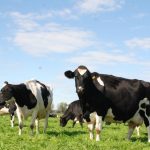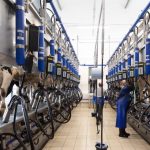
New Zealand’s dairy sector is more threatened than our meat producers by the development of new proteins, according to new research funded by the Our Land and Water National Science Challenge.
However, the country’s dairy companies say the report over-simplifies dairy’s value as a food and the ease with which it may be substituted.
The Protein Future Scenarios project modelled the future economic and environmental implications of three main alternative protein technologies.
The project was a collaboration of the AgriBusiness Group with the Lincoln, Canterbury and Otago universities and the Norwegian research group Ruralis.
Research leader Jon Manhire of AgriBusiness told Rural News the project found the most disruption would be associated with precision fermentation, which uses fermentation and yeasts to replicate dairy products.
“It’s a technology which is up and going and it’s scalable,” said Manhire.
The other technologies were using plant protein to produce meat substitutes, and cellular cultivation, which involves taking a living cell and having it replicae itself over and over in a nutrient medium.
Noting that Sunfed, a New Zealand-based meat substitute manufacturer, recently announced that it is closing, Manhire suggested plant-based proteins may have “reached a bit of a peak,” while cellular cultivation was still at a low level of development.
The project modelled four scenarios, based on different rates of uptake and associated changes in consumer demand, and looked at their effects on land use, the environment and economy out to 2050.
Manhire said an expected general increase in global demand for protein would limit the impact on New Zealand’s traditional protein production out to about 2035.
But beyond that “there could be some pretty significant impacts” on some pastoral sectors.
The scenario predicting the worst economic outcome for New Zealand envisages that precision fermentation “takes off” but the other two technologies don’t. Decreased output from the dairy sector would drop New Zealand’s economy and employment by around 9%, albeit with some positive environmental outcomes in lessened nitrate and greenhouse gas emissions.
Manhire emphasised that that was their bleakest scenario and other scenarios had more positives.
Under the best scenario, all three alternative proteins “take off” with all current barriers to their success overcome. That would bring a shift in land use from pastoral farming to arable and forestry, with widespread overall improvements in employment and the economy (up 7%), and lessened environmental impacts of farming.
You can now read the most important #news on #eDairyNews #Whatsapp channels!!!
🇺🇸 eDairy News INGLÊS: https://whatsapp.com/channel/0029VaKsjzGDTkJyIN6hcP1K

























